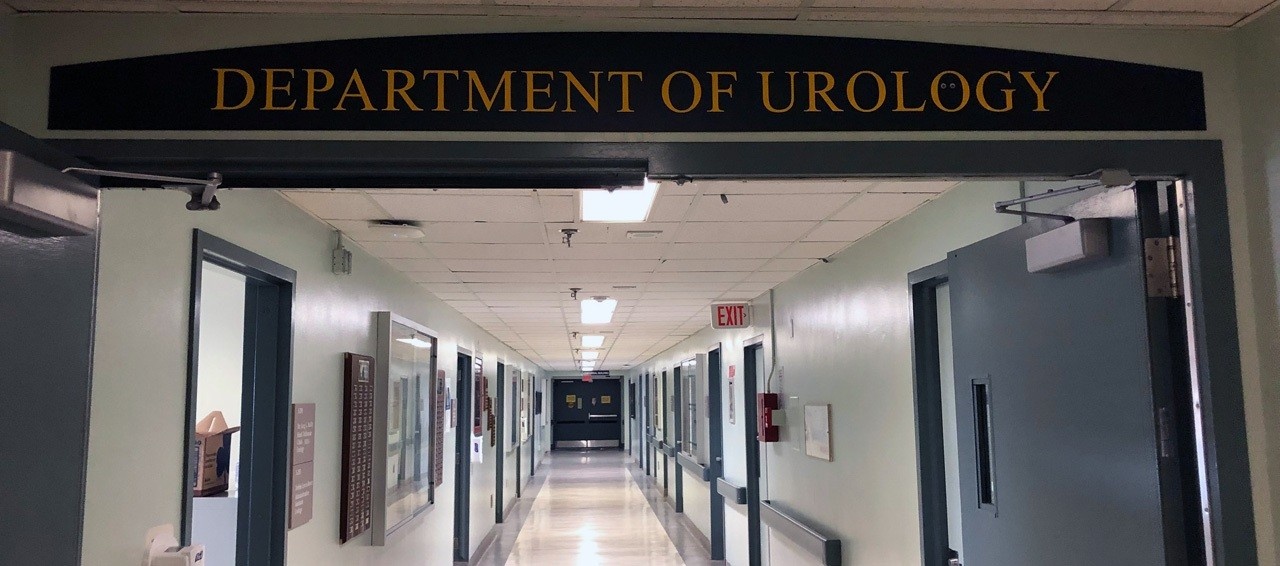Functional Urology
Helping patients live comfortably
Who are we?
Faculty Members:
Dr. Greg Bailly MD, FRCSC
Professor and Department Head
| Dr. Bailly is a native Nova Scotia, having been born and raised in Lunenburg, NS. Following his BSc at Queen’s University, Dr. Bailly completed his Medical Degree (1997) and Urology Residency (2002) at Dalhousie University. He did additional sub-specialty training and a Fellowship in Reconstructive Urology and Urodynamics, at Sunny Brook Health Sciences Center (under Drs. Sender Herschorn, Ron Kodama, and Leslie Carr), University of Toronto before returning to the Faculty of Medicine at Dalhousie University in 2003. Dr. Bailly is well known for his expertise in Functional Urology, including complex urinary tract reconstruction, management of male and female urinary incontinence, urethral stricture disease, neurourology and urodynamics, and male genitourinary prosthetic surgery. He is currently the University Head of Urology at Dalhousie, and Chief of Urology for the Nova Scotia Health Authority (Central Zone). Dr. Bailly is a founding member of the Functional and Reconstructive Society of Canada (FRUSC) and currently is the Secretary of this society. | .jpg.lt_d8df86fea50e0d8dd2e9bc3a700b8a0e.res/image-2018-12-11(4).jpg) |
Dr. Ashley Cox BSc, MSc, MD, FRCSC
Associate Professor and Residency Program Director
Originally from Toronto, Dr. Cox completed her undergraduate degree at McMaster University in 2001. She attended medical school at the University of Western Ontario before completing urology residency training at Dalhousie University. Dr. Cox then returned to Ontario for two years to complete her fellowship training in Reconstructive and Female Urology. In addition to joining Dalhousie Urology in 2013, she also obtained a Master’s degree in Clinical Epidemiology and Health Care Research at the University of Toronto. |
.jpg.lt_056802f73085c5db04e7b7dc3916a300.res/image-2018-12-14(2).jpg) |
What is Functional Urology?
Functional Urology is a subspecialty within Urology that addresses benign conditions that result in dysfunction of the lower genitourinary tract. Functional urology disorders almost always an impact on one’s quality of life, and these conditions are managed in a variety of both surgical and non-surgical/medical ways. Some examples of these types of conditions include: urinary leakage (incontinence), urinary retention, prostate enlargement, overactive bladder, pelvic pain conditions, strictures (abnormal scar tissue), infections, loss of erections and sexual health concerns. Functional urologists also specialize in treating patients who have bladder dysfunction related to neurological disorders such as spinal cord injuries and multiple sclerosis.
What urological conditions do we treat in Dalhousie’s functional urology group?
Functional Urology includes a variety of conditions which ultimately affect lower urinary tract function. Some of these are congenital in nature, and others are acquired early or later in adult life. These conditions can result from a variety of causes such as trauma, post-surgical complications, radiation therapy, and neurological conditions. Examples of Functional Urology disorders include:
1. Stress Urinary Incontinence (male and female)
2. Overactive Bladder (OAB) and Urgency Urinary Incontinence
3. Neurogenic bladder dysfunction (Multiple Sclerosis, Parkinson’s Disease, Spinal Cord Injury)
4. Bladder Pain Syndrome (Interstitial Cystitis)
5. Benign Prostatic Enlargement and Male Lower Urinary Tract Symptoms
6. Lower urinary tract injuries and trauma (vesicovaginal fistula, ureteral injury, etc)
7. Post-radiation complications
8. Urethral Stricture Disease
9. Male Sexual Dysfunction
What are some of the surgeries we offer at Dalhousie?
At Dalhousie, the Department of Urology offers all standard of care surgical techniques whoch would be found in any major teriary care center in North America. For most conditions in functional urology, conservative and medical approaches are attempted initially before moving forward with surgery, which is often indicated.
1. Female stress urinary incontinence surgery: synthetic mid-urethral slings, pubovaginal sling with autologous fascia, urethral bulking agents
2. Male stress urinary incontinence: artificial urinary sphincter (AUS), Advance XP Male Sling, ATOMS sling
3. Refractory overactive bladder and urgency incontinence: onabotulinum toxin (Botox), Sacral Neuromodulation (Interstim)
4. Lower urinary tract diversion: ileal conduit diversion, continent catheterizable diversion
5. Urethral reconstruction/urethroplasty: excision and primary anastomotic techniques, buccal mucosa onlay techniques, one and two stage urethroplasty, adult hypospadias
6. Vaginal surgery: female urethral reconstruction, transvaginal mesh removal, vesicovaginal fistula, urethrovaginal fistula, urethral diverticulum
7. Benign prostate enlargement (BPE): transurethral resection of the prostate (TURP)
8. Penile prostheses for erectile dysfunction: inflatable penile prostheses (IPP), malleable penile prostheses.
9.
What research is being done in this field at Dalhousie?
The Department has many active clinical research projects on a variety of the above named topics, including clinical trials and investigator initiated studies. Examples of these projects include:
1. Bladder Pain Syndrome/ Interstitial Cystitis and Cannabinoid use
2. Urological issues in Nonagenarians
1. Links and Resources
a. Canadian Urological Association (CUA) https://www.cua.org/en
b. Functional and Reconstructive Urology Society of Canada (FRUSC) – website under construction
c. Society of Urodynamics and Female Urology (SUFU) https://sufuorg.com/resources/patients.aspx
d. International Continence Society (ICS) https://www.ics.org/
2. Patient Information.
Patient information of the above named topics can be found on the Patient Information Section of the Canadian Urological Association website:
https://www.cua.org/en/patient
